The UAE has developed from a juxtaposition of Bedouin tribes to one of the world's most wealthy states in only about 50 years. Between 2000 and 2018, average real gross domestic product growth was at close to 4%. It is the second largest economy in the GCC , with a nominal gross domestic product of US$414.2 billion, and a real GDP of 392.8 billion constant 2010 USD in 2018. Since its independence in 1971, the UAE's economy has grown by nearly 231 times to 1.45 trillion AED in 2013. The non-oil trade has grown to 1.2 trillion AED, a growth by around 28 times from 1981 to 2012.
Backed by the world's seventh-largest oil deposits, and thanks to considerate investments combined with decided economic liberalism and firm Government control, the UAE has seen their real GDP more than triple in the last four decades. Nowadays the UAE is one of the world's richest countries, with GDP per capita almost 80% higher than OECD average. The UAE is a politically and economically stable country and holds the 25th position globally in Global Competitiveness Report 2019 by World Economic Forum. In addition, it stands out as one of the 10 largest donor states in official development aid . Recognised as a tolerant country, the UAE hosts more than 200 nationalities doing business, living, learning and touring the UAE.
Residents enjoy freedom of civil rights and practice of religion. The UAE's monetary policy stresses stability and predictability, as the Central Bank of the UAE keeps a peg to the US Dollar and moves interest rates close to the Federal Funds Rate. This policy makes sense in the current situation of global and regional economic and geopolitical uncertainty.
In the mid- to long term, however, the peg will become less important, as the UAE transitions to a knowledge-based economy – and becomes yet more independent from the oil and gas sector . Much of the work force in the UAE are foreign expatriates - hence the country's population makeup being so diverse, with Emirati citizens being a minority in their own country. All Emirati citizens receive profit sharing cheques from the government and mostly opt to work in the government sector. Migrant workers from the Indian Subcontinent and the Philippines are mostly employed in the service and construction industries for low wages.
Many mid-level jobs are filled by expats and Emirati nationals who work in the private sector, in addition to expats who work in high-skilled and managerial positions and typically enjoy a very good standard of living. If you're interested in working in the UAE there are opportunities in oil and gas, banking, engineering and education. The public school system in Abu Dhabi is hiring a large numbers of English-language teachers from Western countries. These teaching jobs in the UAE are accessible through official recruiters of the Abu Dhabi Education Council.
The waters of the UAE, although definitely more cloudy in recent years due to heavy coastal construction, are still, for those from less torrid climes, remarkably warm, clean, and beautiful. There are long stretches of white-sand beaches, ranging from completely undeveloped to highly touristed . The snorkeling and diving can be magnificent, especially along the eastern coast. Vast swaths of desert stretch to the south of the major urban areas, offering dramatic views and terrifying rides in fast-driven safaris. The mountains are dramatic, steep rocky crags, and a visit to them is well rewarded with amazing views.
Women wearing bathing suits will draw unwanted attention at the public beaches; it is advisable to pay for a one-day entry pass to a private beach at a hotel. United Arab Emirates is a country located in the Middle East bordering the Gulf of Oman and the Persian Gulf. It has a strategic location along southern approaches to the Strait of Hormuz, a transit point for world crude oil.
The geography of United Arab Emirates is rolling sand dunes of desert and mountains in the east. The government system is a federation with specified powers delegated to the UAE federal government and other powers reserved to member emirates; the chief of state is the president, and the head of government is the prime minister. United Arab Emirates has an open market economy in which the prices of goods and services are determined by a free price system. United Arab Emirates is a member of the League of Arab States and the Gulf Cooperation Council . The introduction of mandatory health insurance in Abu Dhabi for expatriates and their dependents was a major driver in reform of healthcare policy. Abu Dhabi nationals were brought under the scheme from 1 June 2008 and Dubai followed for its government employees.
The UAE attracts medical tourists seeking cosmetic surgery and advanced procedures, cardiac and spinal surgery, and dental treatment, as health services have higher standards than other Arab countries in the Persian Gulf. As impressive as economic growth has been in the UAE, the total population has increased from just around 550,000 in 1975 to close to 10 million in 2018. This growth is mainly due to the influx of foreign workers into the country, making the national population a minority.
The UAE features a unique labour market system, in which residence in the UAE is conditional on stringent visa rules. This system is a major advantage in terms of macroeconomic stability, as labour supply adjusts quickly to demand throughout economic business cycles. In a 22 July 2020 news piece, Reuters reported human rights groups as saying conditions had deteriorated because of the COVID-19 pandemic. Many migrant workers racked up debt and depended on the help of charities. The report cited salary delays and layoffs as a major risk, in addition to overcrowded living conditions, lack of support and problems linked with healthcare and sick pay. Reuters reported at least 200,000 workers, mostly from India but also from Pakistan, Bangladesh, the Philippines and Nepal, had been repatriated, according to their diplomatic missions.
Human occupation has been traced back to the emergence of anatomically modern humans from Africa some 124,000 BCE through finds at the Faya-2 site in Mleiha, Sharjah. Burial sites dating back to the Neolithic Age and the Bronze Age include the oldest known such inland site at Jebel Buhais. Known as Magan to the Sumerians, the area was home to a prosperous Bronze Age trading culture during the Umm Al Nar period which traded between the Indus Valley, Bahrain and Mesopotamia as well as Iran, Bactria and the Levant.
The ensuing Wadi Suq period and three Iron Ages saw the emergence of nomadism as well as the development of water management and irrigation systems supporting human settlement in both the coast and interior. The Islamic age of the UAE dates back to the expulsion of the Sasanians and the subsequent Battle of Dibba. The UAE' history of trade led to the emergence of Julfar, in the present-day emirate of Ras Al Khaimah, as a regional trading and maritime hub in the area. The maritime dominance of the Persian Gulf by Emirati traders led to conflicts with European powers, including the Portuguese Empire and the British Empire.
Islam is the official religion and Arabic is the official language. The United Arab Emirates' oil and natural gas reserves are the world's sixth and seventh-largest, respectively. Zayed bin Sultan Al Nahyan, ruler of Abu Dhabi and the country's first president, oversaw the development of the Emirates by investing oil revenues into healthcare, education, and infrastructure. The United Arab Emirates has the most diversified economy among the members of the Gulf Cooperation Council. In the 21st century, the country has become less reliant on oil and gas, and is economically focusing on tourism and business. The government does not levy income tax, although there is a corporate tax in place and a 5% value-added tax was established in 2018.
Monday's instruction is part of Bin Salman's broader campaign to turn Riyadh into a major business hub that rivals the UAE. In addition to giving foreign companies an ultimatum to establish their regional headquarters in Riyadh if they want to do business in the kingdom, Saudi Arabia hasamended trade rulesthat undermine the interests of Abu Dhabi. Some investors and their shareholders, however, remain wary of the prince.
The campaign, described by critics as a shakedown, largely took place outside of the courts and public view. Multiple entry visas allow travellers to exit and return to Saudi Arabia multiple times, but this is valid for 6 months from the date of the first exit from the Kingdom. If a person does not exit and re-enter the Kingdom while the visa is still valid, the sponsor can be penalised.
The validity of both single and multiple exit/re-entry visas is dependent on the Iqama expiry. Google Cloud, Alibaba and Western Union are some of the latest big names to establish stakes in the kingdom. DUBAI, United Arab Emirates — Saudi Arabia, in a bold and unexpected move, announced late Monday that by 2024 its government would cease doing business with any international companies whose regional headquarters were not based within the kingdom. Saudi Arabia announced late Monday that by 2024 its government would cease doing business with any international companies whose regional headquarters were not based within the kingdom. Saudi Arabian citizens who did not receive their second Covid-19 vaccine within the past three months must have a booster dose before travelling outside the country under new rules that took effect on 9 February. Individuals travelling to the kingdom must present a Covid-19 test taken 48 hours before departure.
Fully vaccinated citizens who test negative will be allowed to enter the country seven days after a positive PCR test without needing to test again. If you are caught trafficking, manufacturing, importing or exporting more than 15g of heroin, 30g of morphine, 30g of cocaine, 500g of cannabis, 200g of cannabis resin or 1.2kg of opium you will automatically face the death penalty. Possession of these quantities is all that is needed for you to be convicted and hung. They have treated drug trafficking as a capital crime as well with an automatically death penalty.
Travelers will normally see a big sign that states Death Penalty for Drug Traffickers at airports and international port of entry. For unauthorized consumption, there is a maximum of 10 years' jail or fine of $20,000, or both. You can be charged for unauthorized consumption as long as traces of illicit drugs are found in your system, even if you can prove that they were consumed outside the country.
You can be charged for trafficking as long as drugs are found in bags that are in your possession or in your room, even if they aren't yours and regardless of whether you're aware of them. It is best not to bring any illict drugs into the UAE as well as the rest of the world. If you are a recreational drug user or even have to take certain controversial medications, your best bet is, sadly, to simply not visit UAE at all. If you are certain you are clean, taking with you bags and clothes that have never been in contact with any questionable substances is a wise move. There have been several locals and foreign visitors that have been caught and executed for drug crimes. This punishment depends on how much you carry and if you have any prior offenses.
The UAE and Israel used to not have diplomatic relations, and as such Israeli passports were not be recognized at the border. Holders of Israeli passport needed to make advance arrangements for an entry permit. However, despite much online misinformation to the contrary, Israeli visa stamps are — by official policy — not a problem at all, and neither is having been born in Israel or Palestine. The roads and other public facilities are modern if, at times, extremely crowded. Supermarkets offer a vast assortment of products from Europe and the U.S., depending on the shop, along with local and regional items. Major international chains such as Ikea and Carrefour have a presence and fast-food chains (nearly all from the U.S.) such as McDonald's and KFC operate widely.
On the other hand, there are still a few crowded traditional souks filled with products from around the world, rug stores. These can be hard to find for the average traveler, as the malls tend to gain an overwhelming amount of attention. (Please note that contrary to what is printed in guidebooks, the souks in Abu Dhabi were torn down in 2006 and no longer exist. The souks in Dubai are still wonderful to explore, though).
If you are transiting, you are allowed to stay only for up to 4 days. UAE visas for employment are issued for a maximum of 2 months, during which time you have to convert it into a Residence Visa or leave the country. Since the discovery of oil, the GCC region has undergone a profound transformation and is now home to some of the fastest growing economies in the world. Today, the governments of the GCC countries undertake successful efforts to diversify their economies away from dependence on hydrocarbon industries.
These diversified growth sectors, such as finance, logistics, aviation, communications, healthcare and tourism provide abundant business opportunities. Liberal climates towards foreign cooperation, investment and modernization result in extensive diplomatic and commercial relations with other countries. Creating jobs and diversifying the economy sit at the heart of Prince Mohammed's Vision 2030 blueprint for transforming the country.
He is to inherit a nation where over a third of the population is under 14, and more than 60% are under 35. No longer can the public sector absorb or afford the wages of most Saudis. Avoid non-essential travelThere are specific safety and security concerns that could put you at risk. You should reconsider your need to travel to the country, territory or region. If you are already in the country, territory or region, you should reconsider whether or not you really need to be there. If not, you should consider leaving while it is still safe to do so.
It is up to you to decide what "non-essential travel" means, based on family or business requirements, knowledge of or familiarity with a country, territory or region, and other factors. Women must be met by their sponsors at the port of arrival or risk being denied entry. This does not apply to women entering the country on a tourist visa. The United Arab Emirates is a federation of seven different emirates, each with its own sheikh. The capitol emirate, Abu Dhabi, covers about 70% of the nation's land.
Each emirate retains considerable autonomy, most notably over oil revenues. In theory, the President and Prime Minister are elected by the Supreme Council, which is composed of the sheikhs of each of the seven emirates. However, in practice, the king of Abu Dhabi is always elected President while the king of Dubai is always elected Prime Minister, making the posts de facto hereditary.
Is Saudi Arabia and Dubai same country As a result the rulers--or Sheikhs--of each emirate are revered and can radically affect the way of life in his respective Emirate. Each Emirate serves almost like a city-state, like a collection of seven Singapores. For example, Sheikh Mohammed bin Rashed al-Maktoum of Dubai is very modern, so Dubai is slightly less conservative. The ruling sheikhs of Ajman and Sharjah are very conservative, thus the rules there are stricter concerning religion, alcohol, and general living conditions. As of 2018, you can extend almost any UAE visa or entry permit two times, each for 30 additional days and for a fee of AED 600.
You have to apply for a visa extension before your current visa expires, otherwise you'll be fined for overstaying. Abu Dhabi is one of the seven emirates making up the UAE, as well as the capital. As such, if you are planning on visiting Dubai and Abu Dhabi, you do not need to get a separate visa for each. If you are a visa-required national, you only have to apply for a UAE Tourist Visa and you can visit all seven of its emirates, including Abu Dhabi. United Arab Emirates authorities continue to invest in a "soft power" strategy aimed at painting the country as a progressive, tolerant, and rights-respecting nation.
Many activists and dissidents, some of whom have completed their sentences, remain detained simply for exercising their rights to free expression and association. Prisons across the UAE hold detainees in dismal and unhygienic conditions, where overcrowding and lack of adequate medical care are widespread. The UAE continues to block representatives of international human rights organizations and UN experts from conducting in-country research and visiting prisons and detention facilities.
The Arab states of the Persian Gulf – also known as Gulf countries or the "Arabian Gulf" – is a set of Arab states that border the Persian Gulf. There is a total of seven countries that are part of this region. Almost all of the countries, except Iraq, are members of the Gulf Cooperation Council, a regional intergovernmental union. Iran is also located along the Persian Gulf, but this non-Arab state is not included in the Arabian Gulf.



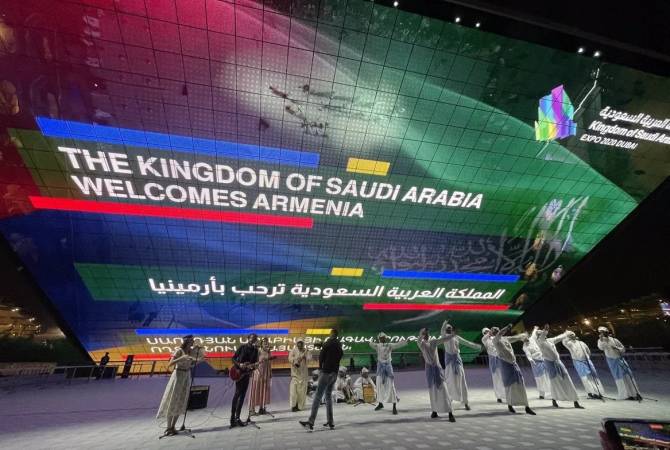





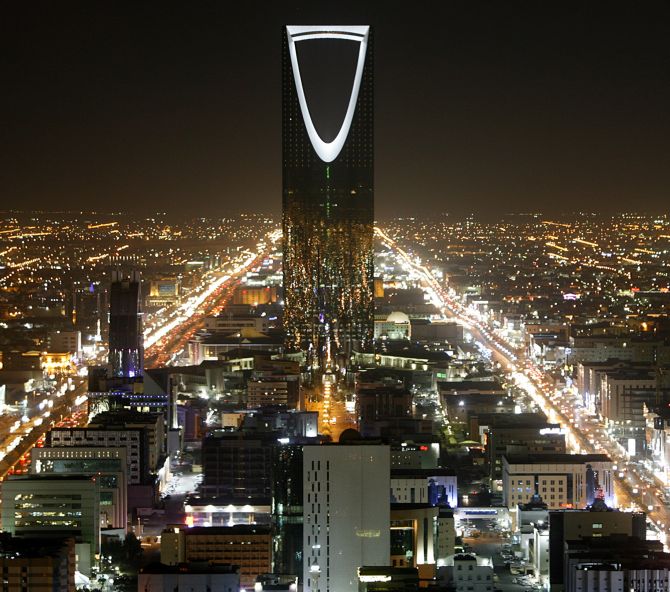

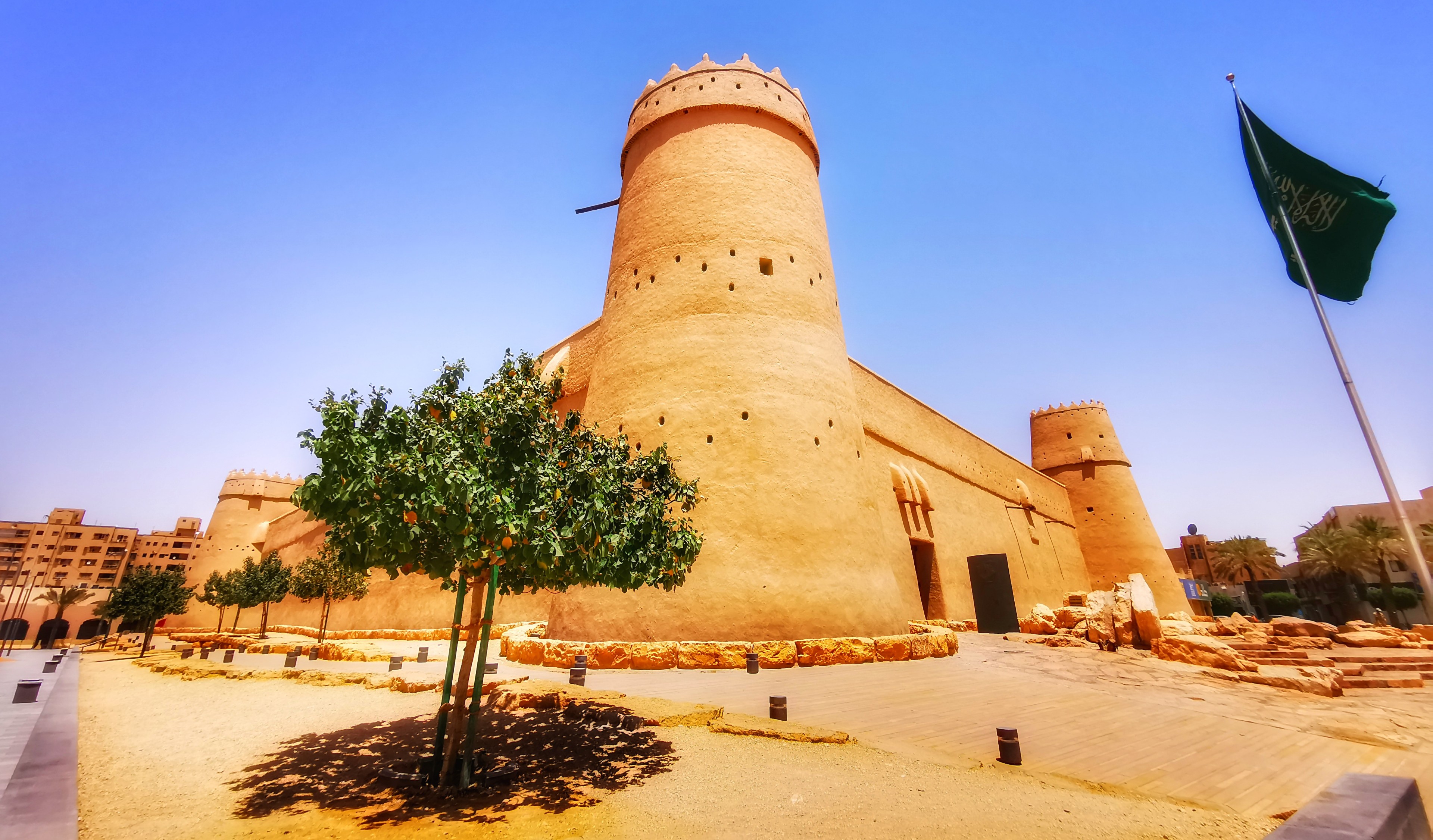
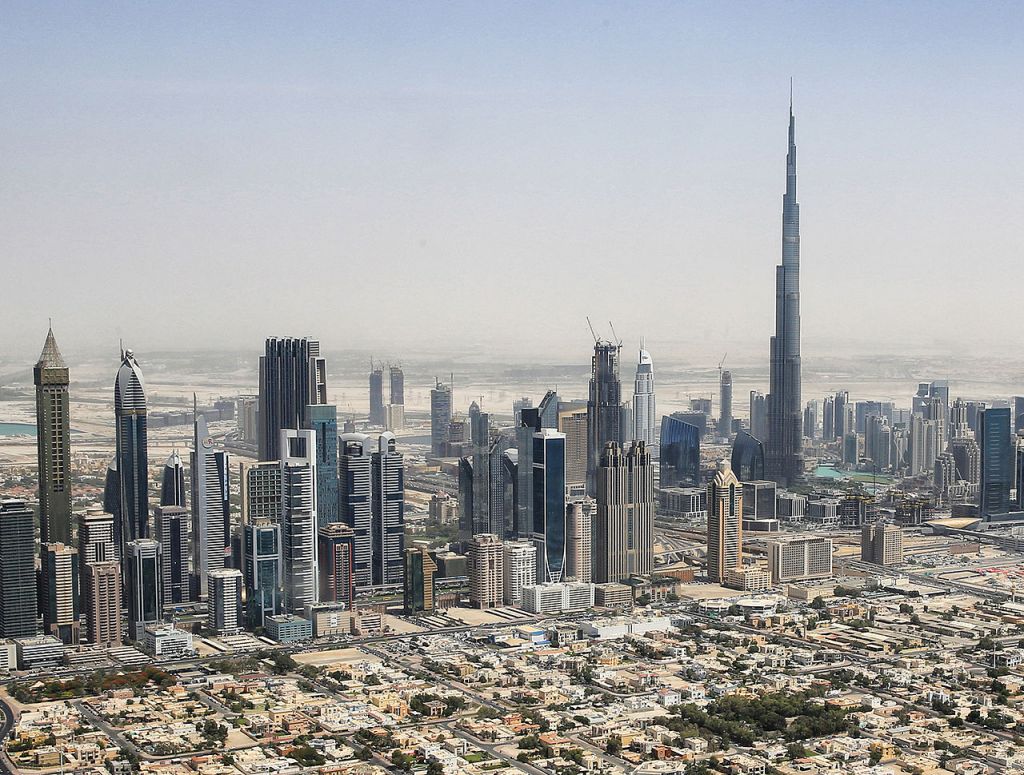



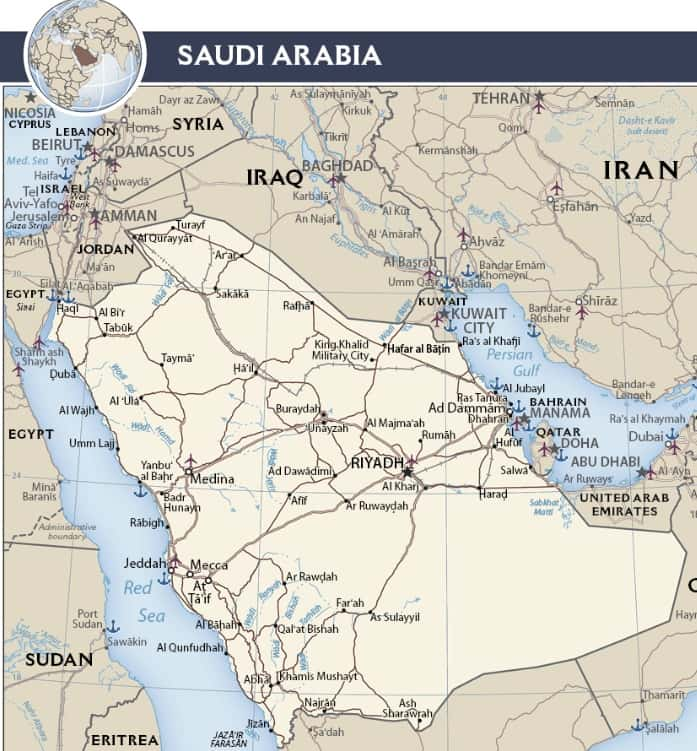




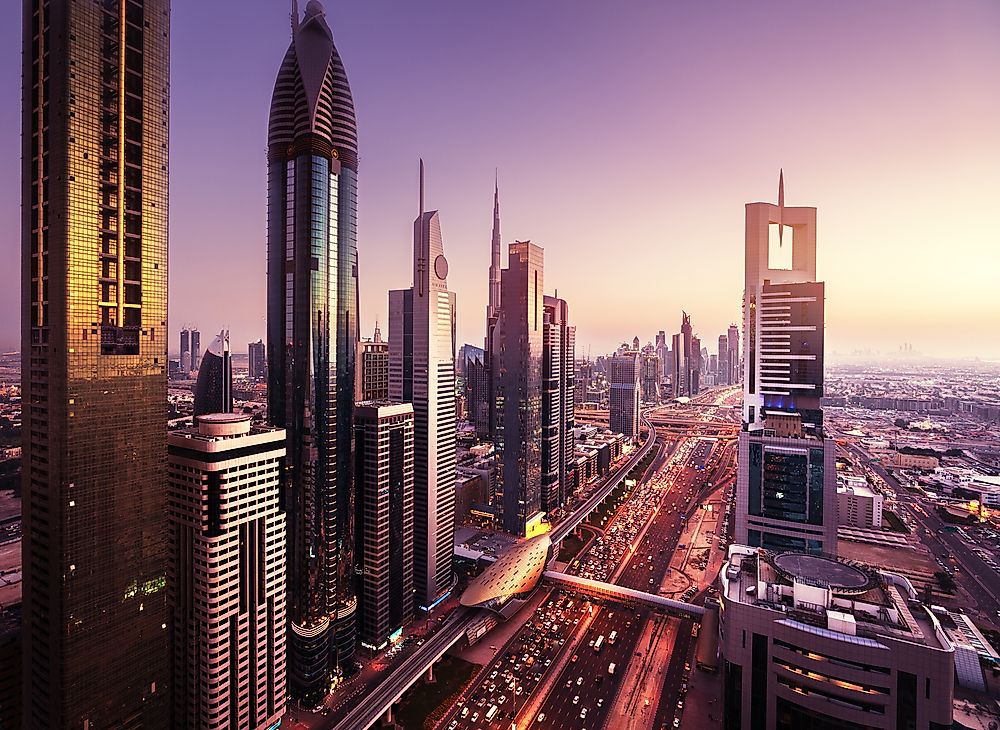





No comments:
Post a Comment
Note: Only a member of this blog may post a comment.